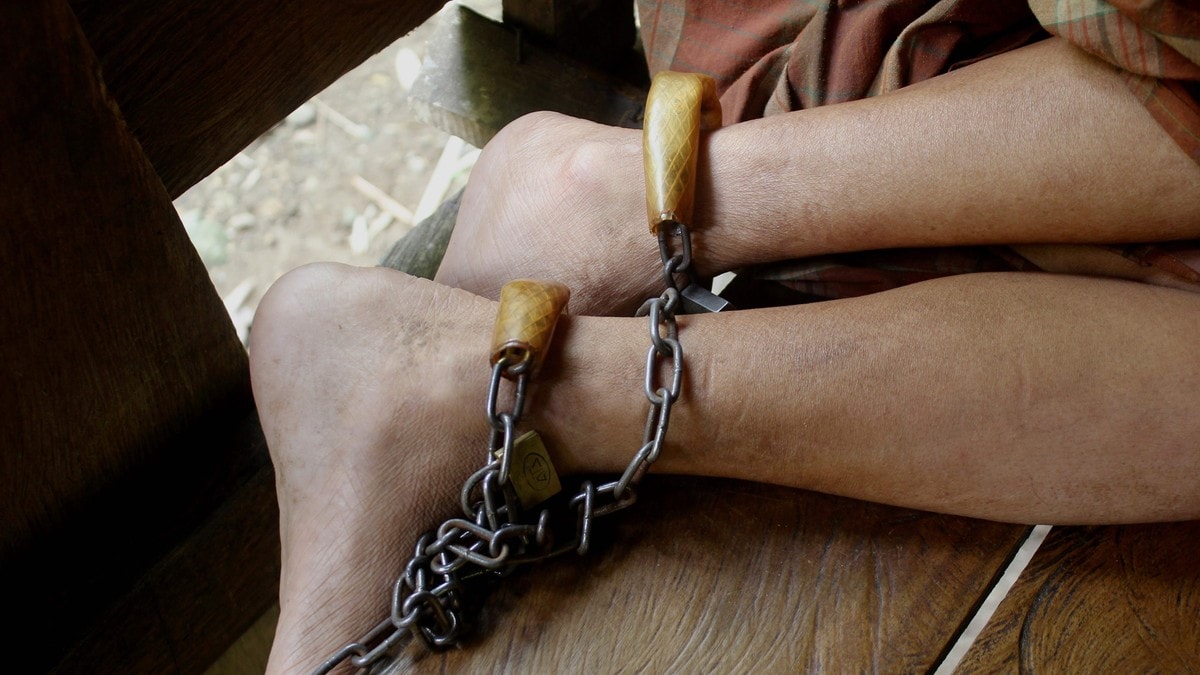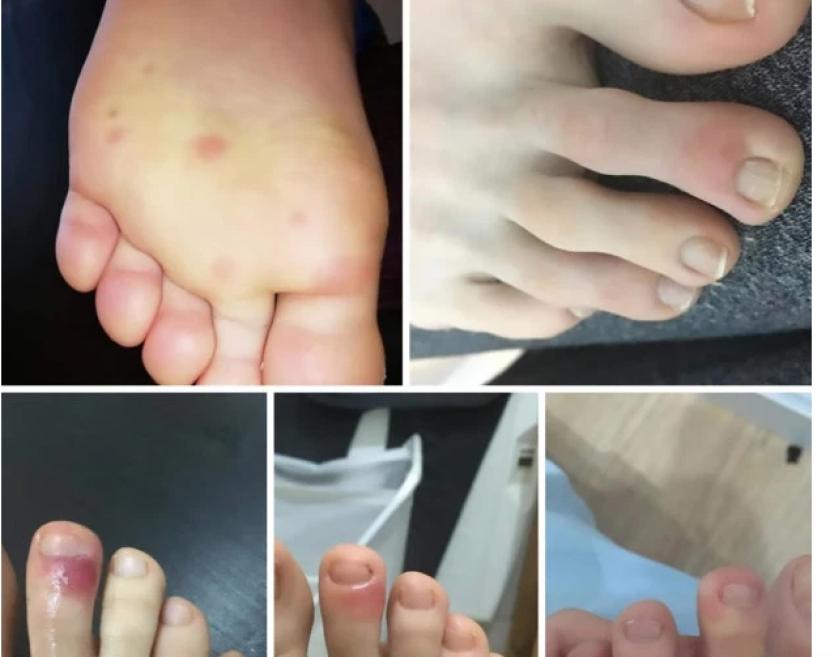Globally, hundreds of thousands of people with mental health problems are chained, and they live in highly reprehensible conditions, shows ein ny rapport frå Human Rights Watch (HRW).
The report reveals that men, women and children – all the way down to the age of ten – are chained or locked inside a limited area in about 60 countries on most continents in the world.
– Linking a permanent person with mental health problems is a worldwide brutal practice that is an open secret in many countries, warns Kriti sharma, HRW’s specialist in disability law and author of the report.
Stigma
According to Sharma, there is a systematic challenge in several countries around the world, where the health care system is too poor and the stigma surrounding mental health too great.
– People can be chained for several years to a tree, locked inside a cage or a shed because families struggle to cope with the situation, and the government fails to help with adequate mental health services, Sharma explains.
Globally, it is estimated that 792 million people, ie a quarter of a tenth of a person, struggle with their mental health. Among children, the number is one in five.
– Depression, which is the most common cause of disability, is reported to be twice as common among women as among men, writes HRW in the report.
Front page image of the report “Living in Chains” from Human Rights Watch
Foto: Human Rights Watch
–
Dangerous stigma
Nevertheless, surveys conducted by HRW show that the government spends less than 2 percent of the health budget on mental health.
More than two thirds of the countries do not cover mental health services in the national health insurance system.
About 80 percent of people living with disabilities – including those with mental disabilities – live in middle- or low-income countries where it is difficult to access health services, especially mental health services, according to HRW.
– In the absence of the right type of support for mental health services and in the absence of an understanding of the topic, many families experience that they have no choice but to link their loved ones. They often do this for fear that the person will escape or injure themselves or others, HRW explains in the new report.
Inhuman methods
A recurring problem in several countries is that many turn to traditional or religious centers for alternative healing methods when one does not receive assistance from the government.
According to HRW, there is a recurring pattern in these institutions that people suffering from mental illnesses have to live in miserable conditions, often chained, or they experience that they are punished in other ways for a mental condition they themselves do not control.
– There is no point in people living like this. A human being should live freely, says Paul, a Kenyan man who has lived in prison for five years in a “threat-healing” institution.
– The links are so heavy. I live in a small room with seven other men. I’m only allowed to dress in underpants, and I have to go to the bathroom in a bucket. I have oatmeal for breakfast, and if I’m lucky, I find bread every now and then on a rare evening, Paul tells HRW.
– The responsibility of the governing authorities
For HRW, the responsibility and solution for a better life for people like Paul lies with national governments around the world.
– It is terrible that hundreds of thousands of people around the world have to live in chains, isolated, abused and lonely. The government should stop pushing this problem under the rug and address this now, Sharma urges.
READ AND:
–


